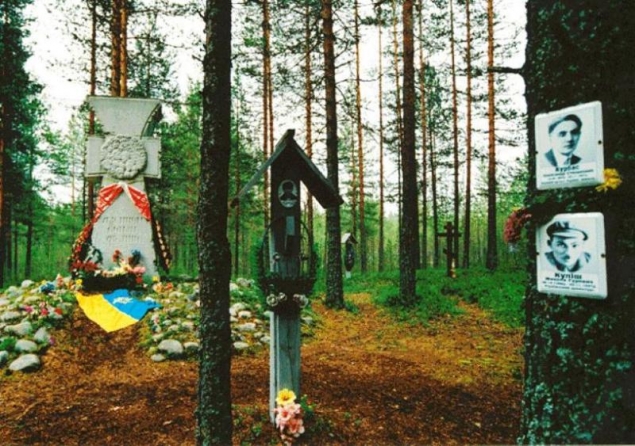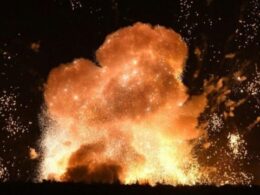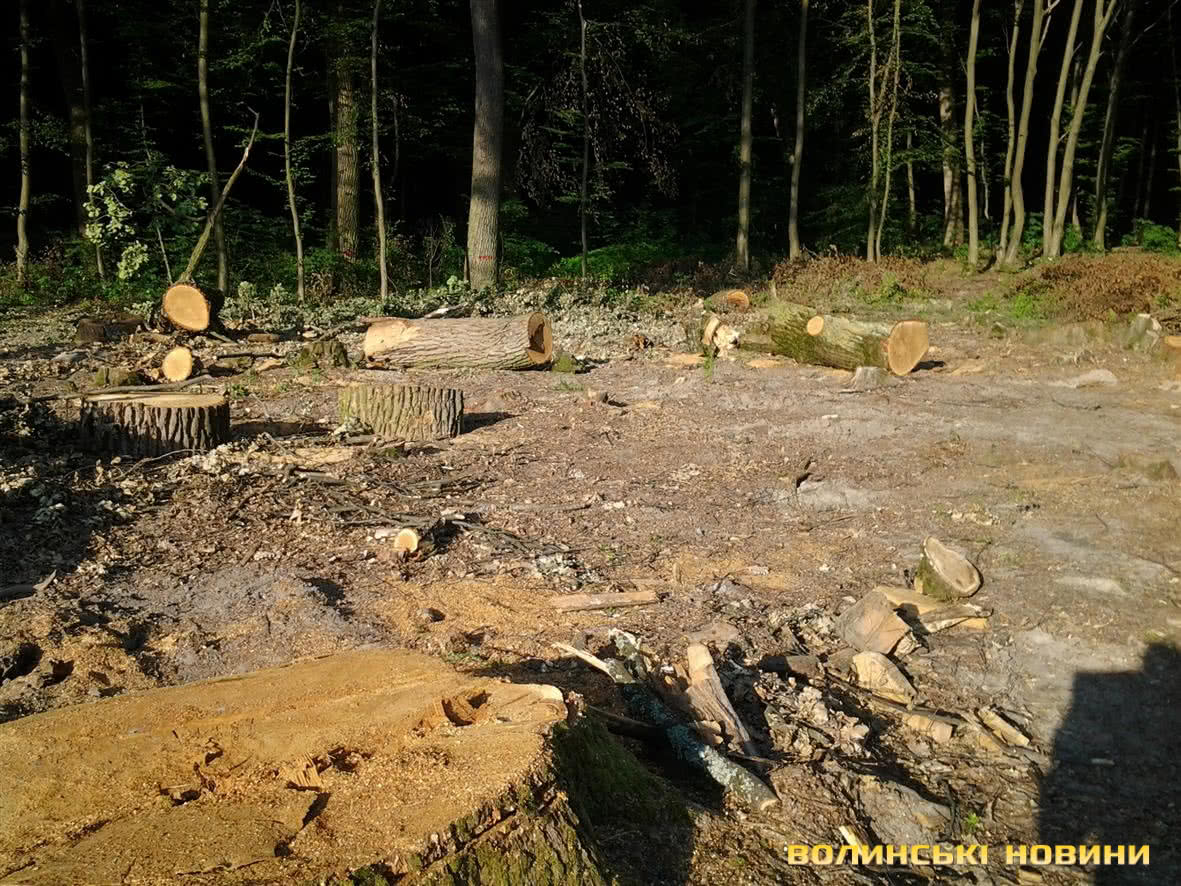Today marks the 86th anniversary of the Sandarmokh massacre, a tragic event where over a thousand people, including prominent Ukrainian writers, poets, artists, scientists, and others, were ruthlessly executed by Soviet authorities.
A thousand renowned Ukrainian writers, artists, scientists, playwrights, and other prominent figures were shot in the pine forest in northern Russia (Karelia) on an autumn day.
Known as the "Executed Renaissance" in Ukraine, this brutal massacre claimed the lives of luminaries such as poet Mykola Zerov, theater director Les Kurbas, educators Antin, Ostap, and Bohdan Krushelnytskyi, writers Valeryan Pidmohylnyi, Mykola Kulish, and many more. Approximately six thousand individuals from diverse ethnic backgrounds met their tragic end at Sandarmokh between 1937 and 1938.
For decades, the Soviet Union concealed this crime, only revealing the truth in 1997 when a group of Russian historians from "Memorial" discovered the massacre site after extensive searches. These historians and their organization are now oppressed and labeled as "foreign agents" by Putin's regime. Yuri Dmitriev, a leading researcher at Sandarmokh, has faced arrest.
"Those who believe Moscow began its plan to annihilate Ukraine and erase Ukrainian identity in 2022 or even 2014 should read more about Sandarmokh, the Holodomor genocide, and other horrible crimes committed over the ages," Ukraine's Minister of Foreign Affairs Dmytro Kuleba commented.
"These crimes have never been properly prosecuted or punished. And it is precisely this total impunity that has enabled the Russian evil to commit horrible atrocities in Bucha, Izium, Mariupol, and elsewhere. Ukraine must win this war and bring evil to justice, no matter how long it takes, to ensure Ukrainians right’ to live in peace and safety in their homeland," Kuleba said.
From October 27th to November 4th, 86 years ago, the Soviet authorities massacred over a thousand people in the Sandarmokh forest.
Among them were prominent Ukrainian writers and poets, artists, scientists, dramatists, and other luminaries shot in the back of their heads in the… pic.twitter.com/gK3gqjcDyI
— Dmytro Kuleba (@DmytroKuleba) November 4, 2023
The peak of terror in 1937-1938 was partially due to the authorities hurriedly covering up their crimes. Standard 10-year camp sentences for "kulaks" and victims of late 1920s political trials were ending. These prisoners could reveal the horrifying truth about the Gulag system - the most classified aspect of "Stalinist democracy".
Having seen and endured the camps firsthand, the inmates would return unappeasable avengers. So the regime decided to "celebrate" the 20th anniversary of the Bolshevik October Revolution with execution, not amnesty or pardon.
Among those executed at Sandarmokh were renowned Ukrainian Neoclassical poets Mykola Zerov and Pavlo Fylypovych. They clung to hope of returning home up until the end and continued their creative work even in the camps.
Dramatist Mykola Kulish, founder of modern Ukrainian theater and director Les Kurbas, were also shot dead at Sandarmokh. Kurbas even managed to set up a camp theater and stage several performances.
To buoy the spirits of the prisoners, their wives showed amazing resourcefulness - for instance, they would wrap parcels containing food in pages ripped from recently published books and magazines. Thus the inmates did not lose touch with Ukraine's literary scene.
The entire family of writer Anton Krushelnytsky, who had arrived from Galicia at the invitation of the Soviet authorities, was executed. As they were being led to their deaths, his sons cried out: "Father, why did you bring us here?" The tragedy of this family became a symbol of the repressions.
By annihilating an entire generation overnight, the regime inflicted lasting scars on subsequent generations and Ukraine's history. Bereaved parents and orphaned children were forced to live branded as “family members of an enemy of the people,” deprived of any chance at a normal life. Social, spiritual and cultural ties were severed.
However, the resisting power of remembrance, both individual and collective, is formidable. Mentions of the repressed and tortured nourished Ukrainian resistance to Soviet rule for decades. By siding with the victims, people set themselves in opposition to the killers.




